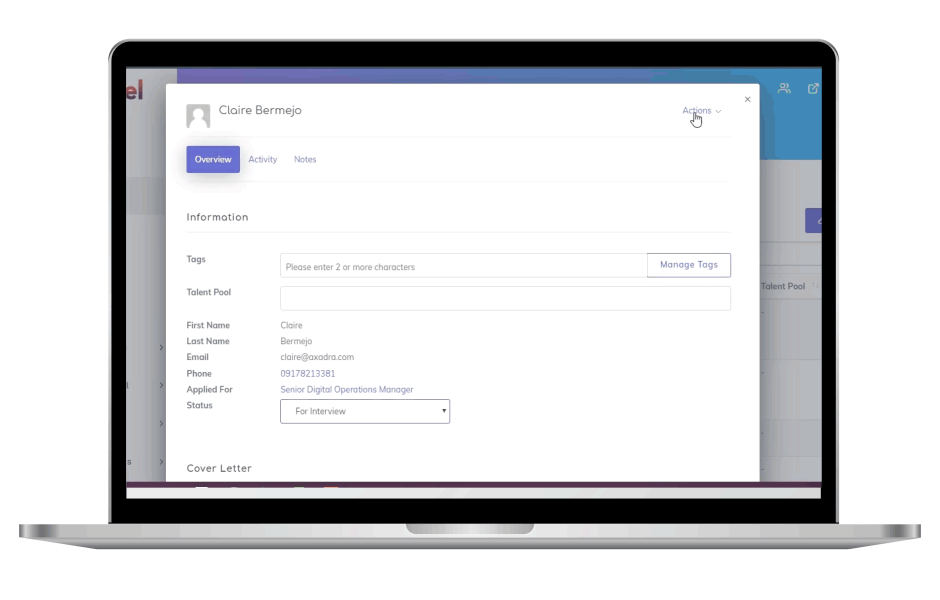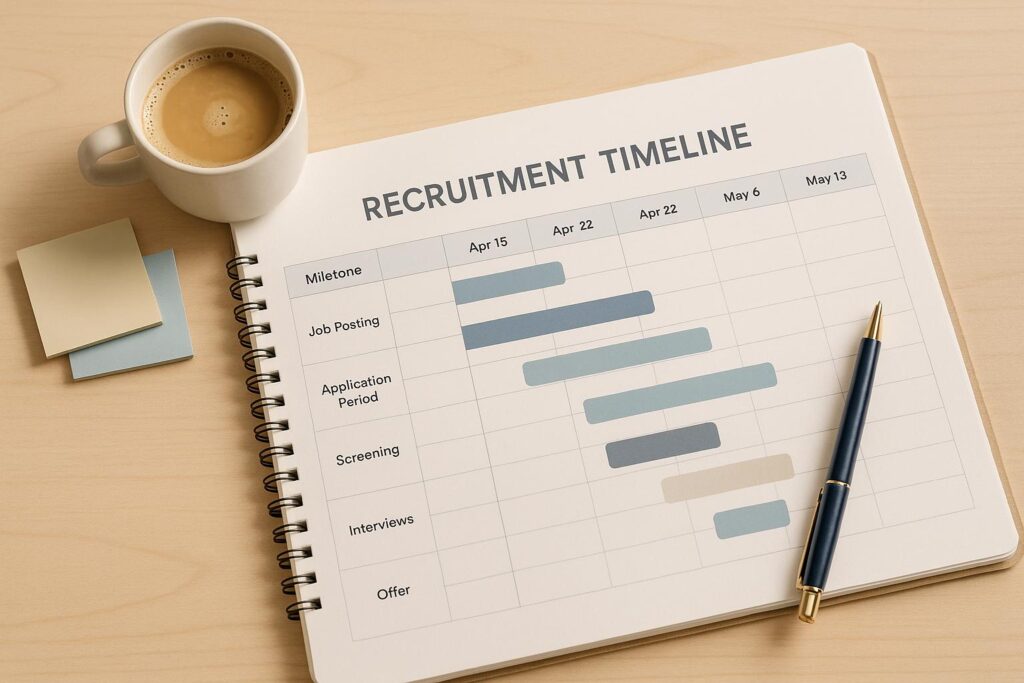Navigating work permits across Africa can be complex, as each country has its own rules and processes. This guide simplifies the essentials for HR teams hiring in South Africa, Kenya, and Nigeria, covering permit types, costs, timelines, and employer duties. Here’s a snapshot of what you need to know:
- South Africa: Offers General Work, Critical Skills, and Intra-Company Transfer visas. Costs start at ~$170, processing takes 4–8 weeks, and permits last up to 5 years.
- Kenya: Uses Class D (employment) and Class G (investment) permits. Fees range from $1,000–$2,000, processing takes 8–12 weeks, and permits are valid for 1–2 years.
- Nigeria: Provides Temporary Work Permits (TWP) for short-term roles and CERPAC for long-term employment. Costs start at ~$2,000, with processing times between 4–12 weeks.
Key challenges include varying timelines, labor market testing, and compliance requirements. South Africa recently introduced a points-based system, eliminating labor market tests for General Work Visas, while Kenya and Nigeria still require them for certain permits.
Employers must ensure proper documentation, track permit renewals, and meet country-specific obligations to avoid penalties. Tools like Skillfuel can streamline compliance by automating processes and tracking deadlines.
| Country | Permit Types | Key Requirements | Processing Time | Validity | Fees |
|---|---|---|---|---|---|
| South Africa | General, Critical Skills, ICT | Job offer, qualifications, police clearance | 4–8 weeks | 4–5 years | ~$170 |
| Kenya | Class D (Employment), Class G | Labor market test, business proof | 8–12 weeks | 1–2 years | $1,000–2,000 |
| Nigeria | TWP, CERPAC | Employer sponsorship, police clearance | 4–12 weeks | 3 months–2 years | ~$2,000+ |
Employers should stay updated on regulatory changes, plan ahead, and use compliance tools to manage these processes efficiently.
South Africa’s New Points-Based System for Work Visas
Work Permit Requirements by Country
Navigating work permit applications across various African nations can be complex, especially for U.S. companies expanding their operations. Each country has its own set of regulations, so understanding these requirements is crucial. Below, we’ll explore the key rules in three major economies.
South Africa: Critical Skills and General Work Visas
South Africa offers three primary work visa options. The General Work Visa requires a job offer and evidence that no local candidate is available for the role. This often involves labor market testing, which can extend the process by several weeks. On the other hand, the Critical Skills Work Visa is designed for professionals with expertise listed on South Africa’s official Critical Skills List. Unlike the General Work Visa, this option skips labor market testing when the skill is in high demand, speeding up the process significantly. Professionals like software engineers, data scientists, and certain healthcare specialists often qualify for this visa.
The Intra-Company Transfer (ICT) Work Visa is tailored for multinational companies transferring employees to their South African branches. To qualify, the employee must have worked for the parent company for at least six months before the transfer. This visa is valid for up to four years but cannot be renewed.
Recent changes to South Africa’s work permit system introduced a points-based framework for General Work Visa applications, eliminating the Department of Labour’s involvement. Applicants are now evaluated based on qualifications, experience, and other factors, creating a more straightforward and transparent process.
Applicants need to provide documents such as a passport, a fixed-term job offer, qualifications verified by SAQA, police clearances for countries where they’ve lived for at least 12 months in the past five years, and proof of the company’s registration.
For 2025, fees include $95 (R1,520) for the Department of Home Affairs and $97 (R1,550) for VFS service charges. An optional Premium Lounge service is available for an extra $31 (R500). Both the General and Critical Skills Work Visas are valid for up to five years.
Kenya: Work Permit Classes
Kenya uses a class-based system for work permits, with specific categories tailored to different employment types. The Class D Permit is for individuals with a job offer. Applicants must provide proof of qualifications, a signed employment contract, and a justification from the employer explaining why local candidates were not hired.
The Class G Permit is aimed at investors who plan to engage in business, trade, or consultancy. Requirements include proof of capital, a business plan, and compliance with sector-specific investment thresholds.
Applications are submitted to Kenya’s Department of Immigration and must include completed forms, copies of passports, employment contracts or business plans, and academic certificates. Processing times range from four to 12 weeks, depending on the permit class and the completeness of the application. Permits are valid for one to two years and can be renewed, so starting the process early is essential to avoid delays.
Nigeria: Temporary and Long-Term Work Permits
Nigeria offers two main work permit options. The Temporary Work Permit (TWP) is designed for short-term assignments, making it ideal for technical experts, consultants, or specialists. It’s valid for up to 90 days and has a fast processing time of one to two weeks.
For long-term employment, the Combined Expatriate Residence Permit and Aliens Card (CERPAC) provides both work authorization and residency rights. This permit is generally valid for one to two years and can be renewed. The application fee is approximately $2,000, though fees may vary based on government updates.
Both permits require employer sponsorship, a valid job offer, and police clearance certificates. The key distinction lies in their purpose: the TWP is for short-term, specialized work without residency rights, while the CERPAC supports long-term employment with full residency benefits. CERPAC applications typically take four to eight weeks to process.
Quick Comparison Table
For an at-a-glance summary, the table below outlines the main differences across these countries:
| Country | Main Permit Types | Key Requirements | Processing Time | Validity | Application Fee |
|---|---|---|---|---|---|
| South Africa | General, Critical Skills, ICT | Job offer, SAQA evaluation, police clearance | 4–8 weeks | 5 years (General/Critical), 4 years (ICT) | $95 + $97 service fee |
| Kenya | Class D (Employment), Class G (Investment) | Job offer or investment proof, police clearance | 4–12 weeks | 1–2 years | Varies by class |
| Nigeria | CERPAC, TWP | Employer sponsorship, police clearance | 4–8 weeks (CERPAC), 1–2 weeks (TWP) | 1–2 years (CERPAC), 90 days (TWP) | ~$2,000 (CERPAC) |
This breakdown equips HR teams with the knowledge to align the right permit type with each country’s requirements.
Recent Regulatory Changes and Trends
The work permit landscape across Africa has seen notable shifts in 2024 and 2025, bringing changes that are reshaping how HR teams approach cross-border hiring and compliance.
South Africa’s Points-Based Visa System
In 2024, South Africa introduced a points-based system for General Work Visas, replacing the old process that required the Department of Labour to confirm the unavailability of suitable South African candidates for a position. This new framework evaluates applicants based on factors like qualifications (verified by the South African Qualifications Authority, or SAQA), skills, work experience, age, and language proficiency. By removing the labor market testing requirement, the system aims to simplify the process, offering processing times of 4–8 weeks.
The rollout of the National Labour Migration Policy (NLMP) in 2025 adds another layer of complexity. This policy introduces quotas for foreign workers in key industries like agriculture, hospitality, tourism, and construction. While the NLMP speeds up and clarifies the visa process, it also creates new challenges for HR teams, particularly in industries with quotas. Companies in these sectors must carefully monitor quota availability and adjust hiring plans accordingly, as the policy also limits business visas in certain areas.
Additionally, employers now bear more responsibility for meeting all points-based criteria upfront, as the Department of Labour no longer plays a role in the work visa process. This shift reflects South Africa’s efforts to prioritize local job seekers amid high unemployment rates and public demand for stricter immigration controls.
Temporary Exemption Permits in Southern Africa
Outside South Africa, temporary exemption permits continue to shape regional labor mobility. For instance, the Zimbabwean Exemption Permit (ZEP) and Lesotho Exemption Permit (LEP) have been extended beyond their original November 2025 expiration dates. These permits provide temporary legal status to eligible nationals, offering short-term stability while governments work on new policies. However, these extensions also create uncertainty, as ZEP and LEP holders will eventually need to transition to other visa categories if no further extensions are granted.
For HR teams managing employees under these permits, the extensions offer some breathing room but require careful planning. Employers must stay informed about policy updates and prepare contingency strategies to address potential transitions.
The trend toward digitized systems, like South Africa’s online portal, is another significant development. These systems typically deliver faster decisions – around 4–8 weeks – compared to jurisdictions still reliant on labor market tests or multi-agency approvals, where processing times can stretch to 8–12 weeks or more. Another emerging requirement is entity readiness, with many African nations now mandating that companies complete corporate registration and meet tax compliance obligations before visa applications can proceed.
| Change Type | Impact on HR Teams | Timeline Considerations |
|---|---|---|
| Points-based system (South Africa) | Predictable timelines, stricter documentation needs | 4–8 weeks processing; already in effect |
| Sectoral quotas (NLMP) | Workforce planning challenges, industry-specific limits | Continuous monitoring; quotas may fill quickly |
| ZEP/LEP extensions | Temporary stability, need for transition planning | Extensions valid beyond November 2025; future uncertain |
Application Process and Employer Duties
Navigating work permit applications across Africa involves a mix of procedural steps and legal responsibilities. While digital portals have made the process more efficient, employers face increasing compliance demands that require careful attention.
Step-by-Step Work Permit Application Process
The journey starts with securing a job offer and employer sponsorship. These are the foundation for any work permit application. Applicants must then gather key documents, including a valid passport, a signed employment contract, proof of qualifications, police clearance certificates, and medical certificates.
On the employer’s side, there are critical prerequisites: completing corporate registration, obtaining tax numbers, and securing sponsor licenses. With these steps complete, applications can typically be submitted online. Processing times range from 4–8 weeks, though applications requiring additional labor attestations can take 8–12 weeks or more.
Some African countries require labor market testing, where job openings are advertised to ensure no local candidates are available. However, South Africa has replaced this requirement for General Work Visas with a points-based system. Applicants must score at least 100 points, which are awarded based on factors like qualifications, salary, work experience, and language proficiency.
Once the application is submitted, employers take on additional responsibilities to ensure compliance.
Employer Duties in African Countries
Employer obligations don’t end with the submission of a work permit application. In South Africa, for example, employers are required to verify employee qualifications, ensure that passports remain valid, and provide a legal undertaking to cover deportation costs if necessary.
Employers must also maintain up-to-date records of employee qualifications and report any changes in status to immigration authorities. Local regulations often require employers to absorb standard fees as part of their compliance responsibilities.
Ongoing obligations include monitoring permit expiration dates, filing periodic compliance reports when required, and keeping employee records updated. In countries like Kenya and Nigeria, employers must also adhere to local labor quotas or specific sector restrictions, adding another layer of complexity.
Common Mistakes and Compliance Risks
Mistakes in the application process can lead to significant delays or outright rejections. Missing documents – such as police clearance certificates, valid medical records, or properly evaluated qualifications – are frequent causes of setbacks.
Timing is another common issue. Filing an application before completing corporate registration or obtaining tax numbers can create unnecessary delays. Employers often struggle with regulatory changes, such as South Africa’s recent move to a points-based system, which can lead to misunderstandings.
The consequences of non-compliance are serious. These include hefty fines, damage to an employer’s reputation, and even bans on future sponsorships. Poor record-keeping can complicate audits and renewals, potentially jeopardizing an employee’s legal work status.
To avoid these pitfalls, it’s essential to plan ahead, keep thorough documentation, and stay vigilant about compliance requirements. A proactive approach can save time and prevent costly errors.
sbb-itb-e5b9d13
Work Permit Types Comparison Across Africa
This section provides a side-by-side look at work permit options across Africa, highlighting how they differ based on costs, eligibility, and employer responsibilities. The choices vary widely, and selecting the right permit depends on the specific employment needs of the business.
South Africa offers three main permits: the General Work Visa for standard employment, the Critical Skills Work Visa for high-demand professions, and the Intra-Company Transfer Visa for employees relocating within the same organization. Kenya uses a class-based system, with Class D covering general employment and Class G tailored for trades or consultancy work. Nigeria has a time-based approach, offering Temporary Work Permits (TWP) for short-term assignments and the Combined Expatriate Residence Permit and Aliens Card (CERPAC) for longer-term roles.
Eligibility requirements also vary. For example, South Africa’s Critical Skills Work Visa skips the labor market test, unlike its General Work Visa. Kenya’s Class D permit requires labor market testing, while Nigeria’s TWP emphasizes the technical nature of the job over proving local unavailability.
Work Permit Comparison Table
The table below breaks down key differences in permit types, making it easier to compare financial, administrative, and time-related factors.
| Country | Permit Type | Eligibility Criteria | Validity | Fees (USD) | Employer Obligations | Processing Time |
|---|---|---|---|---|---|---|
| South Africa | General Work Visa | Job offer, skills/qualifications, labor market test | Up to 5 years | ~$170 | Cover repatriation, report non-compliance | 4–8 weeks |
| South Africa | Critical Skills Work Visa | Skills on critical list, qualifications, job offer | Up to 5 years | ~$170 | Confirm skills gap, employment contract | 4–8 weeks |
| South Africa | Intra-Company Transfer | 6+ months with company, transfer to SA branch | Up to 4 years | ~$170 | Employ for duration, ensure compliance | 4–8 weeks |
| Kenya | Class D (Employment) | Job offer, labor market test, qualifications | 2 years | $1,000–2,000 | Documentation, compliance, local training | 8–12 weeks |
| Nigeria | Temporary Work Permit | Short-term assignment, invitation from local entity | 3–12 months | $200–1,000 | Sponsor invitation and compliance reporting | 4–8 weeks |
| Nigeria | CERPAC (Long-term) | Job offer, labor market test, qualifications | 1–2 years | $2,000+ | Sponsor compliance, repatriation | 8–12 weeks |
Key Insights from the Comparison
South Africa stands out with its uniform ~$170 application fee across all permit types, which is notably lower compared to Kenya’s Class D ($1,000–$2,000) and Nigeria’s CERPAC (over $2,000). This consistency, paired with the five-year validity of its General and Critical Skills Work Visas, offers more value compared to Kenya’s two-year maximum or Nigeria’s shorter durations. However, South Africa’s Intra-Company Transfer Visa is non-renewable and requires employees to have been with the company for at least six months.
Employer obligations also differ significantly. In South Africa, employers must cover repatriation costs and report non-compliance. Kenya adds a local training requirement, while Nigeria’s system involves extensive documentation for compliance reporting, placing a heavier administrative burden on sponsors.
Processing times reflect the efficiency of each country’s system. South Africa’s digitized process delivers results in 4–8 weeks, while Kenya and Nigeria’s manual systems can take up to 12 weeks, particularly when labor market testing is involved.
For HR teams working across African countries, these differences emphasize the importance of aligning permit types with specific business needs. For instance, South Africa’s Critical Skills Work Visa offers the same cost and validity as the General Work Visa while removing the labor market testing requirement – an advantage for qualifying roles.
These insights provide a strategic foundation for HR teams before exploring compliance automation in the next section.
Using Skillfuel for Compliance and Recruitment
Handling work permits across multiple African countries can be a logistical headache for HR teams. Each country has its own set of documentation requirements, processing timelines, and renewal schedules, making it easy to miss deadlines or fall out of compliance. Skillfuel’s recruitment management platform tackles these challenges head-on by seamlessly weaving compliance into the hiring process. This ensures that as recruitment progresses, compliance stays on track.
Simplifying Compliance Through Automation
Skillfuel offers a centralized dashboard that makes managing work permit documentation and compliance much simpler. Instead of juggling various files and systems, HR teams can upload, organize, and monitor all necessary documents – like employment contracts or police clearance certificates – in one place. The platform keeps tabs on document statuses, automatically flags missing or expiring paperwork, and sends reminders when it’s time to renew permits.
Companies using Skillfuel have seen higher compliance rates and reduced administrative stress when managing work permits across different African nations. The platform’s workflows are flexible enough to adapt to each country’s specific requirements, making it easier to stay compliant.
Skillfuel doesn’t stop there. It uses data to pinpoint bottlenecks in the process, helping teams improve over time. The Kanban workflow tool is another standout feature, offering a clear visual guide to track candidates through each step – whether they’re submitting documents, awaiting government review, or nearing permit renewal deadlines. This visual clarity helps HR teams quickly spot and address any issues that might slow things down.
While compliance is a major focus, Skillfuel also enhances recruitment workflows to make hiring faster and more efficient.
Improving Recruitment Workflows
Skillfuel combines compliance tracking with its Applicant Tracking System (ATS), ensuring legal requirements are addressed from the start. If a job opening involves a work permit, the system flags it early, prompting HR teams to gather the necessary documentation before extending an offer.
This proactive approach eliminates delays caused by last-minute compliance checks. By embedding compliance into every stage of recruitment, Skillfuel ensures that eligible candidates move smoothly through the hiring pipeline, cutting down timelines and minimizing legal risks.
The platform also facilitates collaboration between HR, legal, and compliance teams through shared dashboards and task management tools. Legal teams can review and approve documents in real time, while compliance officers ensure adherence to country-specific regulations – making even the most complex work permit applications easier to manage.
Skillfuel goes a step further with tools for social media recruitment and employee referrals, helping companies identify candidates who already meet work permit requirements. This reduces the compliance workload and speeds up hiring for critical positions.
For multinational companies operating across Africa, Skillfuel’s integrated system ensures recruitment and compliance data flow effortlessly between departments and across borders. The platform’s comprehensive reports, which combine hiring performance with compliance outcomes, enable smarter, data-driven decisions about recruitment strategies in different regions.
Conclusion: Main Points for HR Teams
Managing work permits across Africa requires a careful balance between ensuring compliance and maintaining smooth operations. Compliance isn’t just about following the rules – it’s about protecting your business from hefty fines, avoiding deportation-related expenses, and safeguarding your reputation, all while keeping your workforce running without interruptions.
As discussed earlier, keeping up with ever-changing regulations is crucial. African countries frequently update their immigration policies, which can alter how businesses hire and retain foreign workers. To stay on top of these changes, HR teams should regularly audit work permit statuses, use compliance calendars to track renewal deadlines, and assign specific team members to monitor regulatory updates.
Planning ahead is another game-changer. Treating entity readiness and immigration as one cohesive project – ensuring all registrations and licenses are in place before submitting applications – can significantly cut down processing times. Instead of waiting 8–12 weeks, businesses can often reduce this to 4–8 weeks. This proactive approach helps avoid delays and ensures that projects stay on schedule.
Technology is transforming compliance management, making it more efficient and less stressful. Tools like Skillfuel simplify the complex work permit process by centralizing documentation, automating renewal alerts, and offering visual tracking through Kanban-style workflows. This means HR teams can shift their focus from tedious administrative tasks to strategic efforts like talent development and workforce planning. Plus, technology makes it easier to track and analyze key metrics.
Some of the most important metrics to monitor include permit application and renewal timelines, processing durations by country, and approval rates. These insights help HR teams spot bottlenecks and fine-tune their processes, ensuring compliance while keeping operations running smoothly.
FAQs
What are the main differences in work permit requirements for U.S. companies expanding to South Africa, Kenya, and Nigeria?
Work permit rules differ greatly across South Africa, Kenya, and Nigeria, particularly for U.S. companies looking to expand their operations. Here’s a closer look at what to expect in each country:
In South Africa, work permits are job-specific, meaning they are tied to a particular role. Employers must demonstrate that no qualified local candidates are available for the position. This often involves providing detailed employment contracts and conducting labor market testing to prove the necessity of hiring a foreign worker.
In Kenya, permits are granted based on the applicant’s professional skills and the value they can add to the local economy. Employers must justify the hire by showing that the required skills are not readily available among local candidates.
For Nigeria, securing a work permit involves obtaining an Expatriate Quota approval, which sets a limit on the number of foreign employees a company can bring in. The process also requires registration with the Nigerian Immigration Service and the submission of employment details.
Since each country has its own specific requirements and timelines, HR teams must carefully plan and ensure they adhere to local regulations to avoid delays or compliance issues.
What’s the best way for HR teams to handle work permit compliance across various African countries?
Managing work permit compliance across various African countries can be tricky, thanks to the varied regulations and processes in each region. To tackle this complexity, HR teams can benefit from tools that streamline and centralize hiring workflows, making it easier to track and manage compliance consistently.
Automation steps in as a game-changer, cutting down on repetitive manual tasks. Meanwhile, centralized dashboards offer a clear snapshot of application statuses, upcoming deadlines, and required documentation. By using these tools, HR teams can stay on top of their game and ensure they’re aligned with local labor laws across different regions.
What are the latest updates to South Africa’s work permit system, and how do they affect General Work Visa applications?
South Africa has recently updated its work permit system, introducing measures designed to better align with the country’s labor market needs. One key change involves stricter proof requirements to demonstrate that no qualified local candidates are available before hiring foreign workers. Additionally, the standards for applicant documentation have been revised.
These updates could lead to longer processing times and demand more detailed preparation from both employers and applicants. To minimize potential delays or rejections, it’s crucial to thoroughly review the updated guidelines and ensure all necessary documents are correctly completed and submitted.













